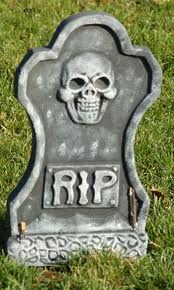 Transition Only Comes With Sacrifice
Transition Only Comes With Sacrifice
All weekend I have been wrestling with the caterpillar to cocoon to butterfly process that I have been blogging about and how it applies to the Church, and its been gut wrenching. I have been wrestling with Isaiah 57 with the “Build up; build up”, but first “remove every obstacle out of the way of my people.” What are these obstacles, how do you remove them. What happens if the obstacle has been something that has been good, foundational, a real positive, but now appears to be in the way. That is tough to admit that something so good, can now be the very thing prohibiting ones move forward. How do you handle that, dispose and let go of those precious things? There is a lot of good in tradition, foundational principles are embedded there, but how do you singularly as an individual believer and corporately as a member of the priesthood of believers let it go, take a hands-off approach? It’s tough.
 Then I remembered the scripture “to obey is better than sacrifice” and all the Old Testament practices that had become meaningful, the central part of Jewish worship: the festivals, the feasts, the intricate system of animal sacrifices, and God tells his prophet that he is sick of them; they are stench to his nostrils. Wow, all this good, all these meaningful services that appear to be the very backbone of their faith, and God now says in today’s vernacular, “that sucks”, then concludes, “to obey is better than sacrifice.”
Then I remembered the scripture “to obey is better than sacrifice” and all the Old Testament practices that had become meaningful, the central part of Jewish worship: the festivals, the feasts, the intricate system of animal sacrifices, and God tells his prophet that he is sick of them; they are stench to his nostrils. Wow, all this good, all these meaningful services that appear to be the very backbone of their faith, and God now says in today’s vernacular, “that sucks”, then concludes, “to obey is better than sacrifice.”
I have painfully learned the lesson to place items on the altar as worship. Even though the Lord will burn them up and consume them, but then has a choice to give them back as is, give them back transformed, give something totally new back, or not give them back at all. Some things are easy to lay on the altar, like the garbage in my life, which he consumes and gives grace and forgiveness back instead. That is the transforming power of Jesus Christ. C.S. Lewis’ classic The Great Divorce is an allegory of showing why it is difficult to give up the very things that prohibit us from wanting the offer of eternal life in heaven. To a sinner, unless he feels he need for a “savior”, he doesn’t want to give up the very life that is holding him back. But what about good things?
I remember going to my last Lay Witness Mission weekend as a coordinator. I loved those weekends when a team of “laity” from all over Central Pennsylvania and other states would come to a home church upon their invitation to share their faith journey stories, pray together, sing together, stay in their homes, fellowship together, and most of all eat pot luck dinners together. I have seen people giving their life to the Lord, dysfunctional, torn families healed, marriages saved, hope restored in discouraged lives, and healing of relationships. It was a powerful ministry! As I was praying for the upcoming mission, for these missions’ foundations were built on prayer, the Lord told me to lay this particular mission down on the altar. I knew what that meant: He’d consume it. What would the result be? He told me: He was not planning to give it back to me; that this would be my last one as a coordinator. Although I felt a moment of grief, of lost, I became “obedient”, laid it down, and moved on.
I believe, the Church is about to go through a cocoon stage in its history. It’s going to be revolutionary, something it has not experienced before. If it is to be greater, more impactful that the Reformation, what will be happening to the Church once inside the cocoon? 1) Every movement of God is centered at the Cross, so I think the Lord is going to increase our understanding vertically (John 3:16-17) of who He is, how He works, what is His will, and how we individually as believers in Jesus Christ and corporately as a Church are to worship Him. The biggest transformation is coming horizontally (IJohn 3:16) in our linear relationships as “peers in Jesus Christ” toward one another. He’s asking, “What are you willing to die for?” Are you willing “to die” for your brothers and sisters in Christ? That will take sacrifice and discipline like the Church hasn’t experienced since its very early years. 2) He’s also asking, “What are you willing to let die?” What are you willing to lay on the altar for His consumption? That’s a tough question individually as a believer, but it is magnified corporately as the Body of Christ. We know the answer should be that we are willing to lay down our "all", aka "everything", but as a Church, are we willing to lay down our traditions, our history, and the way we have done Church? The ball is in our court, but we see this as a great risk, for if we lay it down, He will consume it! That fact is a given!
Our lack of faith and doubt arises in the fear of what He will do with it: give it back as is, transform it into something else, give back something totally knew, or the unthinkable, not give it back at all. We know the last option is not a feasible one, because the Word, the Bible, says that Jesus is coming back for His Church, a Church without spot or wrinkle. So there is our answer to what he will do if we lay the present Church on the altar. The Church certainly will be different if we get it back “spotless” and “without wrinkles”. Individually we know the truth that when we gave him our sins, our garbage, that he gave us back a new life that in his eyes is “spotless” through forgiveness, “wrinkleless” through His grace. If he can do that individually, he can do even greater corporately.
 I exhort the corporate Church, who I so dearly love and am a part of, to please, let’s corporately, together lay down this sacred institution that has meant so much to us, been our foundation, a rock in time of turmoil, our hope in time of darkness, our joy in time of resurrection and praise, and allow the Lord to consume it! Then, while in our cocoon, watch what the Lord does with it, and marvel together at how it all turns out: as a butterfly!
I exhort the corporate Church, who I so dearly love and am a part of, to please, let’s corporately, together lay down this sacred institution that has meant so much to us, been our foundation, a rock in time of turmoil, our hope in time of darkness, our joy in time of resurrection and praise, and allow the Lord to consume it! Then, while in our cocoon, watch what the Lord does with it, and marvel together at how it all turns out: as a butterfly!
